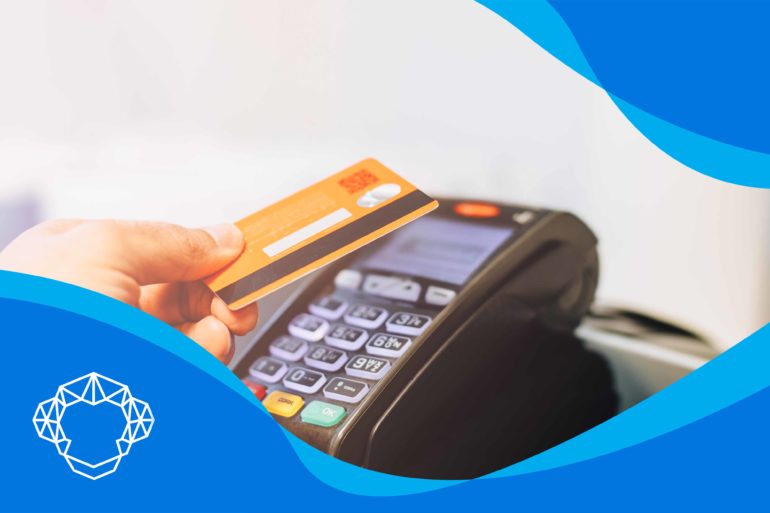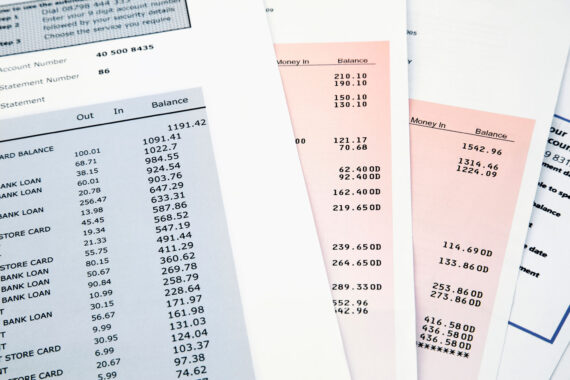A merchant processing company will help you grow your business and keep it safe. When looking for a third-party service provider to handle your transactions, think about all the qualities it should have.
Choosing the Right Payment Processor Is a Strategic Move for Business Success
More than 50% of Americans prefer to pay with plastic, so accepting a variety of credit cards and offering different methods of payment will give you an edge over the competition. Safety should also be one of the critical concerns, so asking processors how will they protect the customers’ data is mandatory. Find out if they use P2P encryption and comply with the Payment Card Industry’s (PCI) rules and standards.
Ask about fee rates and choose those that fit best with the type of biz you are building. All of the decisions you make as an owner will have an effect not only on your firm but on your employees and customers as well. Picking the right service provider will be beneficial for you in the long run, so don’t make a rash decision, take your time, research, and gather information. It will be well worth it down the line.
What Is a Merchant Processing Company, and Why Do You Need One?
As an entrepreneur, you should be familiar with credit card processing companies, the work they do, and how they can help you grow your business. These companies are also referred to as processors, and they are selected by an entrepreneur to handle transactions from various channels. Entrepreneurs should know that if they want to have an online or credit card payment option, they require a payment gateway and a merchant processor. Also, having a credit card processing company means that they assume the risk of every card transaction.
Businesses can accept payments made by credit and debit cards through a merchant processing provider. It mostly functions as a go-between, making sure that when a customer pays with a credit card, the money goes safely from their bank to the business’s account. Both the vendor and the buyer benefit from this service because it enables businesses to accept non-cash payments.
How Does Processing Work?
When looking for a reliable processor, you should be aware of the way the whole thing works. Processors give businesses the possibility to accept debit or credit card payments by connecting them with the bank. They have a number of other tasks, like evaluating transactions and using anti-fraud measures as well.
To understand how credit card transaction processing works, you should get familiar with the main actors:
- Credit card brands and associations own all the cards on the market, and they are large multinational companies like American Express, Visa, and Mastercard. They charge fees for the services of data storage and usage.
- Issuing banks are financial institutions that the customers have an account with. Those banks have the authority to issue cards from the associations and charge interchange fees.
- Acquiring banks hold and maintain merchant accounts for businesses.
- Credit card processors handle the entire process of communication, starting from the merchant to all other parties involved. Also, they provide POS terminals.
When dealing with cashless transactions, businesses have to pay charges to three entities. The first is the fee paid to the issuing bank, the second is the assessment fee to brands, and the third is the markup fee charged by the processor. Two out of three charges are fixed and non-negotiable.
You, as a merchant, should know that interchange fees can vary depending on the card type, processing method, and category. They are charged per transaction, and all the banks agree on the rate through card brands.
When it comes to markup charges, they go to sales agents, gateway providers, processors, and merchant account holders. Some of these fees are paid on a monthly or yearly basis, and when looking for a processor, you should go for the one that can add the highest value to the lowest markup fee. You should know that processors are held to standards and rules created by credit card associations, the so-called PCI Compliance.
How to Set up a Merchant Account?
Before picking a processor, you should set up a merchant account. Simply put, this is a bank account for your business. With it, you will be able to accept debit and credit cards and process card transactions.
When the statistics say that more than 50% of Americans prefer to pay with plastic, it is only reasonable that business owners should provide them with that option if they want to stay on the market. With a merchant account, you will be able to do just that. Also, there are payment service providers (PSP) that allow merchants to accept electronic payments in a couple of ways. PSP can connect many acquiring payment networks, making the merchant less reliant on the financial institution.

Can the Processing Company Work with Your Business?
One of the first things you should think about when choosing a processor is whether it can offer you services that your business needs. What are your long-term goals when it comes to developing your company? Are you running an eCommerce website or a brick-and-mortar store? How much of the transaction volume do you expect? What is the industry you are operating in? Learn about the risks that are specific to your industry – they may impact your rates and your choice of processors. Before you make a decision, remember that the average processing fee can range between 1.5% and 2.9% for swiped cards. Keyed-in transaction fees are higher than 3.5% because they account for the higher risk.
Interchange plus model is the most common and transparent one, and it consists of a percentage of every transaction plus a fixed fee. The wholesale and markup fees here are separated. This is a convenient model for a great number of trades, and in the end, it can result in the lowest costs. The flat rate is suitable for businesses with a lower volume because charges are fixed, no matter the type of card used. Also, wholesale and markup fees are blended, and fees are predictable.
You should find a company that has a good track record of providing excellent services, especially to businesses similar to yours. Consider all the ways your customers will pay for your services. Will you accept credit cards? Besides, think about the equipment you will need. Will you use a simple credit card terminal or a point-of-sale (POS) system? And how about equipment for mobile acceptance or a website gateway?
Also, you should consider international transactions. When you put all of the requirements on paper, it will be easier to find a suitable service to assist you in your line of work.
What Is the Timeframe for Setting up the Equipment?
Ask about the amount of time that the processors will need to set up your account and install the required equipment. Knowing the time frame will help you with organizing all the other things you have to do when you are developing an enterprise. Also, make sure that they can provide you with tech support if you need it during the setting up process.

A Reliable Company Should Care About You as a Client
Being an entrepreneur makes your daily decisions important not only for you but for your employees and customers. Think about all of your actions and their consequences. Even though some of them seem small and insignificant, they can affect the future of your trade.
Choosing the right service is one of the things that can help your trade grow, that is why it is crucial that you pick the right one. You, as an entrepreneur, know how essential it is to provide your clients with excellent customer service. That can be a make-or-break factor in doing business. Make sure that you find a company that will treat you as a valuable customer, not just a client. If they show real interest in your work process and development, they might just be the best partner for you.
Services Should Be PCI-Compliant
When choosing a processor, you should ensure that it is PCI-compliant. Being PCI compliant means following a set of security standards and rules created by major card brands and put in place to ensure that customer information is secure throughout the process. Having security at a high level will prove to your customers that you care about the safety of their data – this can only benefit the growth of your business.

Processors Should Accept a Wide Range of Credit Card Payment Methods
You are an entrepreneur, but at the same time, you are a customer. Keep that in mind when looking for a processor. You will want your customers to have a stress-free experience with your enterprise. That is why you need a company that can enable you to provide just that. Being able to accept a wide range of credit and debit card payments gives your firm an edge over the competition. The customers will be satisfied with the service and options you are providing them.
Also, being compatible with different payment devices and systems like terminals, mobile devices, gateways, and POS software systems is another thing to think about. The processing services should give you the option of accepting various payment methods like chip-and-signature, swiping, and eCommerce. All of these options will ensure that your customers can buy anything at your place of business, which will increase your customers’ overall level of satisfaction.
Accepting New Technologies
As an entrepreneur, you know how important it is to keep up with trends in the market. That being said, hiring a service provider that invests in new technologies is a must. If you have a lot of tech-savvy clients, you should have a processor that offers near-field communication (NFC) technology.
Besides, being able to accept digital wallets like Android, Samsung, or Apple Pay will give you a competitive advantage. This technology allows your clients to buy with the touch of a smartphone or a tablet. You should remember this because the number of mobile payments exceeded 1.500 million at the end of 2017.

They Should Be Equipped with EMV Chip Technology
When receiving payments in person, make sure that your terminal is equipped with all the latest technology. Overall, entrepreneurs should know that all new credit cards come with EMV chip technology. That’s why you need to ensure that your POS equipment can accept transactions via the chip.
EMV chip technology is a method based on a technical standard for smart payment cards, as well as for automated teller machines (ATMs) and payment terminals that can accept them. It revolves around smart cards that store information on an integrated chip. That is why the card must be inserted into a reader. EMV first stood for “Europay, Mastercard, and Visa,” because these companies created the standard, but now that standard is managed by EMVCo.
EMV chip tech adds to your security and protects your trade from breaches, credit card fraud, and hacker attacks. The EMV transaction goes through ten steps, and it has been used since 2011 and tested through more than 19 million terminals. Signature authentication here is more accurate, and PIN verification brings another level of fraud prevention.
Remember That Buyers Want EMV
You should be thinking about the level of security your firm is equipped with. EMV tech keeps your customers safe from breaches. That is why 60% of buyers welcomed this technology in 2014, and the number keeps on growing.

Point-To-Point (P2P) Encryption Should Be Mandatory
When looking for a processor, ask them if they offer point-to-point or P2P encryption. With it, your data is encrypted during every stage of the transaction. Before you implement it, you should know that P2P is a solution enabled by a third-party provider. It is a mix of applications, secure devices, and processes that encrypt information.P2P must contain:
- Encryption of payment card information at the point-of-interaction (POI,)
- Authorized apps at the POI,
- Secure administration of encrypting and decrypting devices,
- Administration of the decryption environment and all decoded account information,
- Use of secure coding procedures and cryptographic key operations.
There are many steps between card swiping and clients entering their information, some of them can be used by hackers attempting a breach. P2P will make sure that every point is protected. With it, the client’s data will be safe at every step of the process.

Being Upfront About the Costs of Services Is a Must
Every entrepreneur knows the importance of budgeting. Receiving a bill at the end of the month with costs you don’t know anything about can be frustrating. To avoid this, choose a company that will be upfront about all the charges. You know how the rates and fees can be confusing. Some companies have hidden fees that you can’t spot unless you know where to look. Don’t let yourself be misled and conned, put some time into finding a transparent company. You will come across two most common pricing models:
- The pass-through pricing model is transparent, and it has three separate categories of costs. Interchange and assessment charges are passed through to a business separately, and what is left is a markup fee with a flat rate and a single transaction charge. With this model, you will have insight into transaction expenses, which will help you control the costs of the transaction.
- The bundle or bucket pricing model combines all the components, which can lead to additional hidden surcharges and markup. This model might seem simple, but it usually is not very transparent, since you cannot separate your interchange and assessment fees, making it impossible to know how much you will pay for a markup fee.
Review the Rates
Processors will consider many factors before they give you a custom rate. They will assess your industry, credit history, business, and projected, and established sales volume. If your line of work is at low risk and you have a higher-volume business, you will probably have lower rates. You should know that processors charge three types of fees:
- Flat fees are fixed, meaning they are not negotiable. These fees are agreed upon by card brands and they are the same for all.
- Situational fees are charged per event like cancellation, set-up, or chargeback fee. Some of these are negotiable.
- Processing fees have the most variables, and they are calculated on each transaction.
When you analyze the benefits and downsides of each type of fee, you will be able to pick one that suits your line of work the best.

Customer Support Accessibility
There is a chance, in every industry, of running into technical problems. Maybe your credit card machine stopped working, or you want to ask about monthly billing, or find out more about fees? When a system is down, your revenue is taking a hit. These outages are not common, but just to be safe, ask your processors about uptime history, as well as the steps they take to reduce service interruptions. Trustworthy processors have a plan that can help trades stay operational even when there is a network outage.
When you are looking for a payment processor, ask about customer support. Find out if it is available 24/7 and able to help you. Representatives should help you with any problems you might be having and they should be able to answer any questions you have. Also, they should be prepared to answer and explain any fees or costs you don’t completely understand.

Find a Partner with the Best Reputation
Reputation in business is everything. You should check the trustworthiness of the processors on your shortlist before hiring one. This is an important decision that will affect the way you take care of your business, so you should make an educated one. Firstly, check in with some of their current clients, ask around, and see if they are satisfied with the level of credit card processing services and professionalism they are getting. Ask around and find out how the other users are satisfied with customer support, equipment, and rates.
If it is possible, find out how the collaboration helped other businesses in their development. Every piece of information you gather will be useful when making the final decision. Finding the best processor is one of those long-lasting investments that will help you create an excellent customer experience and save and earn money along the way.
Feel free to get in touch with our agents who will explain everything. That way we can see whether we are the right match for one another.







